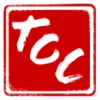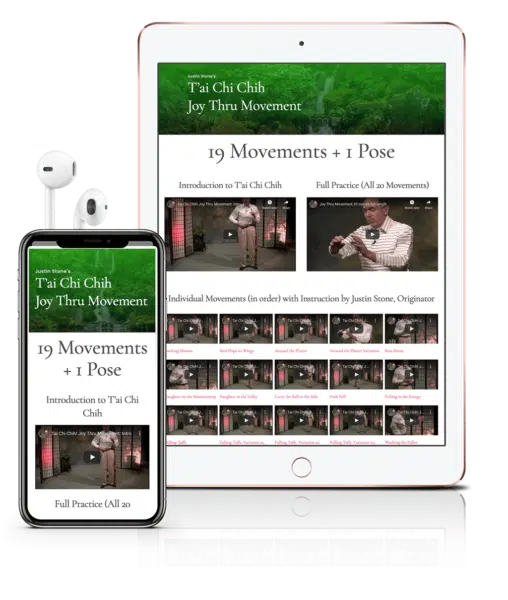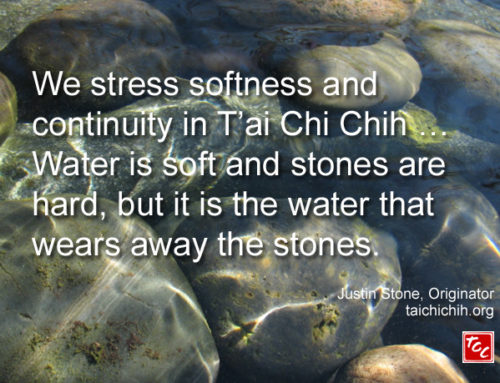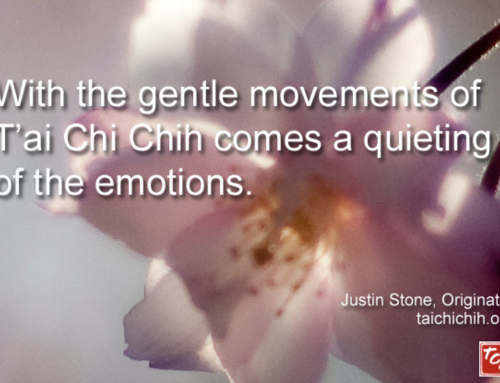Research Shows TCC Helps Relieve Depression
Nine percent of adult Americans have feelings of hopelessness, despondency, and/or guilt that generate a diagnosis of depression, according to statistics from the Centers for Disease Control and Prevention (CDC). At any given time, about three percent of adults have major depression, also known as major depressive disorder, a long-lasting and severe form of depression. In fact, major depression is the leading cause of disability for Americans between the ages of 15 and 44, according to the CDC.
That’s why academic research by experts at the University of California, Los Angeles (UCLA) showing that practicing T’ai Chi Chih can help relieve depression is such important news that needs to be more widely known.
Here’s the basic information from the researchers’ Abstract that accompanied the study published in the American Journal of Geriatric Psychiatry in 2011. The full paper can be downloaded here free of charge.
Background
Nearly two-thirds of elderly patients treated for depression fail to achieve symptomatic remission and functional recovery with first-line pharmacotherapy. In this study, we ask whether a mind–body exercise, Tai Chi Chih (TCC), added to escitalopram will augment the treatment of geriatric depression designed to achieve symptomatic remission and improvements in health functioning and cognitive performance.
Methods
One hundred twelve older adults with major depression age 60 years and older were recruited and treated with escitalopram for approximately 4 weeks. Seventy-three partial responders to escitalopram continued to receive escitalopram daily and were randomly assigned to 10 weeks of adjunct use of either 1) TCC for 2 hours per week or 2) health education (HE) for 2 hours per week. All participants underwent evaluations of depression, anxiety, resilience, health-related quality of life, cognition, and inflammation at baseline and during 14-week follow-up.
Results
Subjects in the escitalopram and TCC condition were more likely to show greater reduction of depressive symptoms and to achieve a depression remission as compared with those receiving escitalopram and HE. Subjects in the escitalopram and TCC condition also showed significantly greater improvements in 36-Item Short Form Health Survey physical functioning and cognitive tests and a decline in the inflammatory marker, C-reactive protein, compared with the control group. [See full section included below.]
Conclusion
Complementary use of a mind–body exercise, such as TCC, may provide additional improvements of clinical outcomes in the pharmacologic treatment of geriatric depression.
You can read the full research paper here free of charge.
Extended Results Discussion
Among the TCC participants, depression response rates were high, with 94% of the subjects achieving HAMD scores of 10 or less and 65% achieving remission, as defined by HAMD, with a score of 6 or less, in contrast among the HE participants, with only 77% achieving HAMD scores of 10 or less and only 51% achieving remission (χ2[1] = 3.68; p< 0.06). Figure 2 reports group differences on the mean HAMD scores over time. Both intervention groups demonstrated improvement in the severity of depression, with greater reductions in depressive symptom severity among those taking escitalopram and participating in the TCC compared with those taking escitalopram combined with HE (group × time interaction: F[5, 285] = 2.26; p<0.05).
On the basis of our prior studies, we also hypothesized a beneficial effect of escitalopram and TCC on the secondary outcomes such as health functioning, cognition, and inflammation. Table 2summarizes primary and secondary outcomes that differentially changed in the two treatment groups. Secondary outcomes reported in Figures 3–5 are particularly promising in terms of the overall benefit for depressed elderly. As compared with escitalopram and HE, escitalopram and TCC yielded greater improvements in 36-Item Short Form Health Survey physical functioning (group × time interaction: F[1, 66] = 5.73; p = 0.02) and cognition (i.e., memory; group × time interaction: F[1, 65] = 5.29; p<0.05) as well as declines in the inflammatory marker, CRP (time effect: F[2, 78] = 3.14, p<0.05 and group × time trend in posttreatment period: F[1, 39] = 2.91; p = 0.10).






